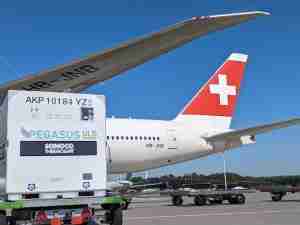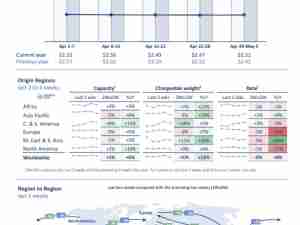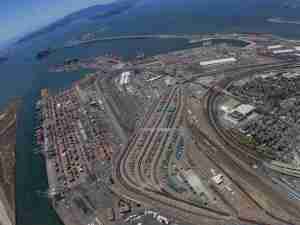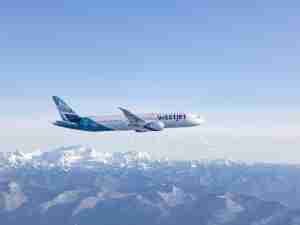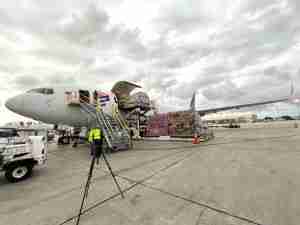Airlines snub CO2 regulation as EU vote looms
posted by AJOT | Apr 01 2014 at 05:57 PM | Air Cargo
Hardly any airlines complied with an EU deadline to report their 2013 emissions, official data, as lawmakers continue to wrangle over how much of the sector should be regulated.
Preliminary figures published by the European Commission showed just 5 percent of airlines regulated under Europe's Emissions Trading System (ETS) reported their carbon emissions from last year, according to Thomson Reuters Point Carbon analysts.
The Commission data was published at 1000 GMT following a Monday deadline for over 13,000 power plants, factories and airlines to report emissions.
Airlines such as Germany's Deutsche Lufthansa and Ireland's Ryanair reported no emissions, while Gulf carrier Qatar Airways was among a handful that had, the data showed.
"This should not be surprising due to the continuous regulatory uncertainty for airlines operators," said Point Carbon's Emil Dimantchev in a statement.
A representative of IATA, the main global trade association for airlines, was not immediately available to comment.
In 2012, the European Union started charging all airlines for emissions for the full duration of their flights into and out of the bloc via its ETS, but agreed to suspend the law and confine the regulation to domestic flights only after complaints from other countries including the United States and China that the measure breached sovereignty rules.
In an effort to curb the sector's fast-rising emissions of heat-trapping gases, the European Commission has proposed extending the current rules to cover all emissions made in EU airspace from 2013 until a global scheme is agreed in 2016.
Member states oppose the plan because they say it risks angering major trading partners but the EU Parliament is more divided ahead of a vote on the proposal in the full assembly in Brussels on Thursday.
Compliance Confusion
"Most major airlines want to comply but the message from the competent authorities is not at all clear," said Julien Dufour, CEO of Verifavia, an auditing company specialising in checking aircraft emission data.
In February, the Commission published guidance suggesting that until the proposal is finalised airlines should not expect member states to enforce compliance deadlines for reporting 2013 emissions or surrendering carbon permits, due on March 31 and April 30 respectively.
But the British government, responsible for policing the majority of airlines under the scheme because of its Heathrow hub, has since warned that the position remains unclear.
"If the Commission's proposal is rejected by the European Parliament on 3 April you (airlines) may be required to report emissions and surrender allowances in respect of full scope 2013 emissions by 30 April 2014," Britain's environment agency said in newsletter published March 28.
Unless a new law is agreed in April, the original global scope is automatically re-applied, potentially putting all airlines back on the hook for the charges.
Unlike industrial firms, no airline has yet been allocated free carbon permits to help cover 2013 emissions, meaning carriers could be forced to buy all their required permits currently costing around 5 euros ($6.90) a tonne each.
Under current law, companies under the EU ETS must by the end of April surrender enough carbon permits to match their emissions for the previous year or face penalties of over 100 euros a tonne.
In a statement on March 19, EU carrier association AEA urged the EU Parliament to provide clarity for airlines.
"We believe that a full ETS is not a realistic option and that it would have a negative impact on European airlines, their operations and their employees," it added. (Reuters)
